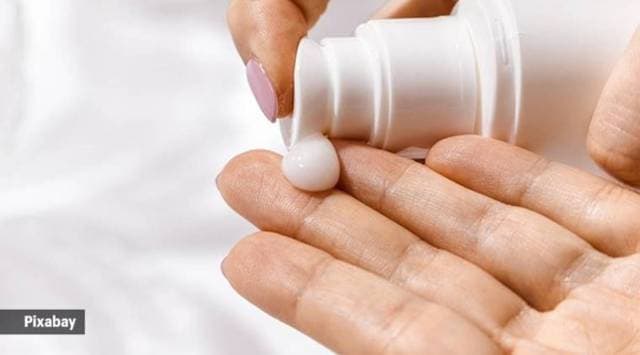Understanding sunscreens: Did you know that you need them if you sit for 8 hours in front of a laptop?
Since pigmentation gets pronounced very easily, we must apply sunscreen while working in front of a laptop. The skin absorbs eight to 10 per cent of the radiation working long hours in front of a device. Even LED and any fluorescent light is a source of radiation. Dr D M Mahajan, Dermatologist, Indraprastha Apollo Hospitals, details your sunscreen hygiene
 Sun protection factor (SPF) is a sunscreen cream’s ability to protect against a specific portion of UVA and UVB rays. (Pic source: Pixabay)
Sun protection factor (SPF) is a sunscreen cream’s ability to protect against a specific portion of UVA and UVB rays. (Pic source: Pixabay) Wearing sunscreen is not just a cosmetic practice or about reducing skin darkening. This is a mistake that everyone makes. A sunscreen prevents your skin against sunburn, harmful effects of radiation that might cause skin cancer and premature ageing. We are exposed to two kinds of ultraviolet rays. Ultraviolet A (UVA) has a longer wavelength. It is associated with skin ageing. Ultraviolet B (UVB) has a shorter wavelength. It is associated with skin burning and tanning. And contrary to use, it is not about face protection. If you do not apply sunscreen uniformly to all exposed parts of your body, that too after every two hours in an exposed environment, then you will be at just as much risk as when you do not apply at all.
The common misconception we have about sunscreens is that we just need them in the sun. Yet we need them in an indoor environment too. Since pigmentation gets pronounced very easily, we must apply sunscreen while working in front of a laptop for eight to ten hours a day. The skin absorbs eight to 10 per cent of the radiation working long hours in front of a device. Even LED and any fluorescent light is a source of radiation. Old Addison bulbs are the least source of radiation. Even applying mustard oil on the skin and staying in the sun with it slapped on increases radiation absorption by the skin. So, one must know of these silent triggers for skin damage as well. Perfumes, too, absorb sunlight, so apply them well before stepping out.
What is SPF? Sun protection factor (SPF) is a sunscreen cream’s ability to protect against a specific portion of UVA and UVB rays. Usually, a broad spectrum sunscreen works. For indoors, the SPF should be at least 30, for outdoors it should be SPF 60 or greater. Also apply any sunscreen every two hours, particularly after you have applied a fresh wipe or washed your face to deal with sweat. Sunscreen doesn’t hold for long, it needs to be replenished. Make sure that you squeeze out a ten rupee coin-sized pellet in your hand for application at each site.
Do you need clinical advice for sunscreens? For sensitive skin and special needs, use only dermatologically recommended creams. But if buying off the shop shelf, then go for physical sunscreens rather than chemical ones because they protect the skin better by reflecting the sunlight away from the body.
If you see Zinc Oxide and Titanium Dioxide as the ingredients, then it is a physical sunscreen. If the label reads avobenzone, oxybenzone, tinosorb and so on, it is a chemical sunscreen. Physical sunscreens, also called mineral sunscreens, may leave a white cast at times but they are healthier. Also, unlike chemical sunscreens, which may take time to be absorbed by the body, mineral sunscreens offer immediate protection. The latter can also easily be applied on top of makeup or other skincare solutions. It doesn’t matter if you layer sunscreen before or after make-up. So long as it is applied to be a sheath.
Do I need as much sunscreen on cloudy days? It is important to apply sunscreen irrespective of the kind of day it is. While clouds can block some of the sun’s rays, the UV radiation can still penetrate through them and reach your skin by 80 to 85 per cent. Some studies say that cloud cover may even enhance UV radiation by shattering the UV rays and making them more intense. For the same reason, apply sunscreen before diving into the pool. You can get sunburnt because water can reflect sunlight and increase your exposure to UV radiation.



































